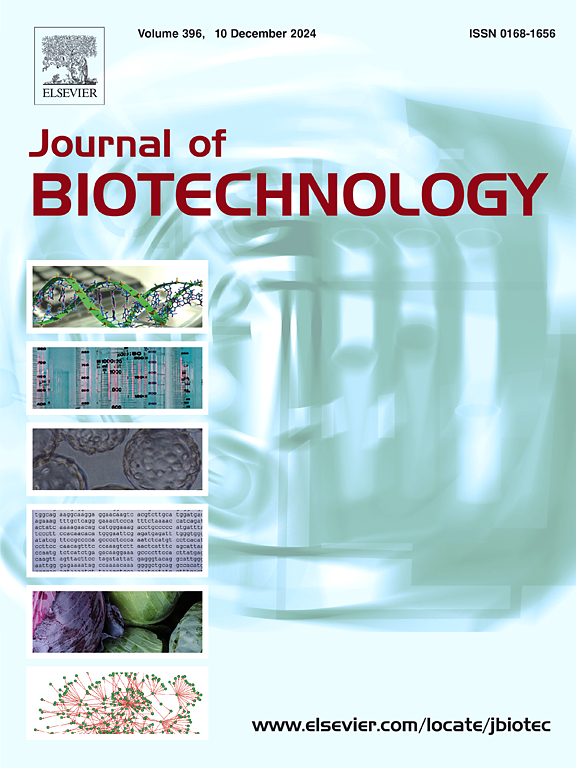Efficient myrcene production using linalool dehydratase isomerase and rational biochemical process in Escherichia coli
Abstract
Microbial synthesis of plant-based myrcene is of great interest because of its high demand, however, achieving high biosynthetic titers remains a great challenge. Previous strategies adopted for microbial myrcene production have relied on the recruitment of a multi-step biosynthetic pathway which requires complex metabolic regulation or high activity of myrcene synthase, hindering its application. Here, we present an effective one-step biotransformation system for myrcene biosynthesis from geraniol, using a linalool dehydratase isomerase (LDI) to overcome these limitations. The truncated LDI possesses nominal activity that catalyzes the isomerization of geraniol to linalool and the subsequent dehydration to myrcene in anaerobic environment. In order to improve the robustness of engineered strains for the efficient conversion of geraniol to myrcene, rational enzyme modification and a series of biochemical process engineering were employed to maintain and improve the anaerobic catalytic activity of LDI. Finally, by introducing the optimized myrcene biosynthetic capability in the existing geraniol-production strain, we achieve de novo biosynthesis of myrcene at 1.25?g/L from glycerol during 84?h aerobic-anaerobic two-stage fermentation, which is much higher than previously reported myrcene levels. This work highlights the value of dehydratase isomerase-based biocatalytic in establishing novel biosynthetic pathways and lays a reliable foundation for the microbial synthesis of myrcene.





